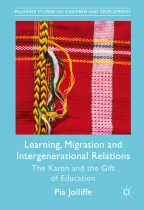Learning and Integration in the UK

Education policies for refugees in the UK have for a long time emphasized integration and assimilation. Towards the end of the seventeenth century, more than 100,000 French Huguenot refugees found a new home in the South of England. Between 1880 and 1914 around 200,000 Jews also found refuge in the UK. The educational response towards these two waves of refugees and migrants was a policy of assimilation and integration: teachers aimed at a faster integration of immigrant children into British society focusing on basic English literacy (Rutter 1994: 46–47). Since the mid-1960s, assimilationist policies have changed to embrace multicultural education with the arrival of immigrants from the Commonwealth countries. The difference between assimilation and multicultural education is that the former aimed at ‘compensating’ ethnic minority’s perceived lack of integration, whilst the latter recognizes the value of students’ diverse home culture, and linguistic and religious backgrounds. Moreover, the multicultural approach aimed at sensitizing all children for life in a multi-ethnic society. In 1979, the British government set up a Committee of Inquiry into the Education of Children from Ethnic Minority Groups. Anti-racism and the stereotyping of ethnic minorities was also an important theme of the report. Under the guidance of Lord Swann a report was produced describing good practices in multicultural education, while emphasizing at the same time that dissonance arises in settings of conflicting social values between ethnic communities and mainstream society (The Swann Report 1985).
This is a preview of subscription content, log in via an institution to check access.
Access this chapter
Subscribe and save
Springer+ Basic
€32.70 /Month
- Get 10 units per month
- Download Article/Chapter or eBook
- 1 Unit = 1 Article or 1 Chapter
- Cancel anytime
Buy Now
Price includes VAT (France)
eBook EUR 42.79 Price includes VAT (France)
Hardcover Book EUR 52.74 Price includes VAT (France)
Tax calculation will be finalised at checkout
Purchases are for personal use only
Bibliography
- Appa, V. 2005. A study on how asylum seekers and refugees access education in four local authorities in England. London: National Children’s Bureau. Google Scholar
- Dudley, S. 2010. Materialising exile: Material culture and embodied experience among Karenni refugees in Thailand. Oxford: Berghahn. Google Scholar
- Loewen, S. 2004. Second language concerns for refugee children. In Educational interventions for refugee children. Theoretical perspectives and implementing best practices, ed. R. Hamilton and D. Moore, 35–52. London: Falmer. Google Scholar
- Group Interview. 30 May 2015. Google Scholar
- McConnachie, K. 2014. Governing refugees: Justice, order and legal pluralism. Abingdon: Routledge. Google Scholar
- Moebue. 2015. Interview, 23 June 2015. Google Scholar
- National Careers Service. 2012. ‘Aged 13–19’ Year 11—What should I do next?https://nationalcareersservice.direct.gov.uk/youngpeople/Pages/YoungPeopleLandingPages/Year11.aspx. Accessed 21 July 2015.
- Phan, B. 2015. Interview, 10 April 2015. Google Scholar
- Phan, Z. 2009. Little daughter. A memoir of survival in burma and the west. London: Pocket Books. Google Scholar
- Network, Refugee Support. 2012. ‘I just want to study’: Access to higher education for young refugees and asylum seekers. London: Refugee Support Network. Google Scholar
- Robinson, B. 2015. Email, 14 July 2015. Google Scholar
- Rutter, J. 1994. Refugee children in the classroom. London: Trentham Books. Google Scholar
- Rutter, J. 2006. Refugee children in the UK. Maidenhead: Open University Press. Google Scholar
- Saha, J. 2015. Email, 1 July 2015. Google Scholar
- The Swann Report. 1985. Education for all: The report of the committee of inquiry into the education of children from ethnic minority groups. London: Her Majesty’s Stationary Office. Google Scholar
- Vogler, P. 2008. Sleeping as a refuge? Embodied vulnerability and corporeal security during Refugees’ sleep at the Thai-Burma border. In Worlds of sleep, ed. L. Brunt and B. Steger, 193–210. Berlin: Frank and Timme. Google Scholar
- Watts, M., and D. Bridges. 2006. Higher education opportunities for refugees, asylum seekers and migrant workers in the east of England. Cambridge: Association of Universities in East England. Google Scholar
- Westerby, R. and S. Ngu-Diep. 2014. Welcome to Europe! A comprehensive guide to resettlement. Brussels: ICMC (International Catholic Migration Commission Europe). Google Scholar
- Witcomb, A. 2012. Using souvenirs to rethink how we tell histories of migration. Some thoughts. In Narrating objects, collecting stories. Essays in honour of professor Susan M. Pearce, ed. S. Dudley et al., 36–50. London: Routledge. Google Scholar
Author information
Authors and Affiliations
- University of Oxford, Oxford, UK Pia Jolliffe
- Pia Jolliffe
You can also search for this author in PubMed Google Scholar
Copyright information
© 2016 The Author(s)
About this chapter
Cite this chapter
Jolliffe, P. (2016). Learning and Integration in the UK. In: Learning, Migration and Intergenerational Relations. Palgrave Studies on Children and Development. Palgrave Macmillan, London. https://doi.org/10.1057/978-1-137-57218-9_7
Download citation
- DOI : https://doi.org/10.1057/978-1-137-57218-9_7
- Published : 08 September 2016
- Publisher Name : Palgrave Macmillan, London
- Print ISBN : 978-1-137-57217-2
- Online ISBN : 978-1-137-57218-9
- eBook Packages : Political Science and International StudiesPolitical Science and International Studies (R0)
Share this chapter
Anyone you share the following link with will be able to read this content:
Get shareable link
Sorry, a shareable link is not currently available for this article.
Copy to clipboard
Provided by the Springer Nature SharedIt content-sharing initiative

